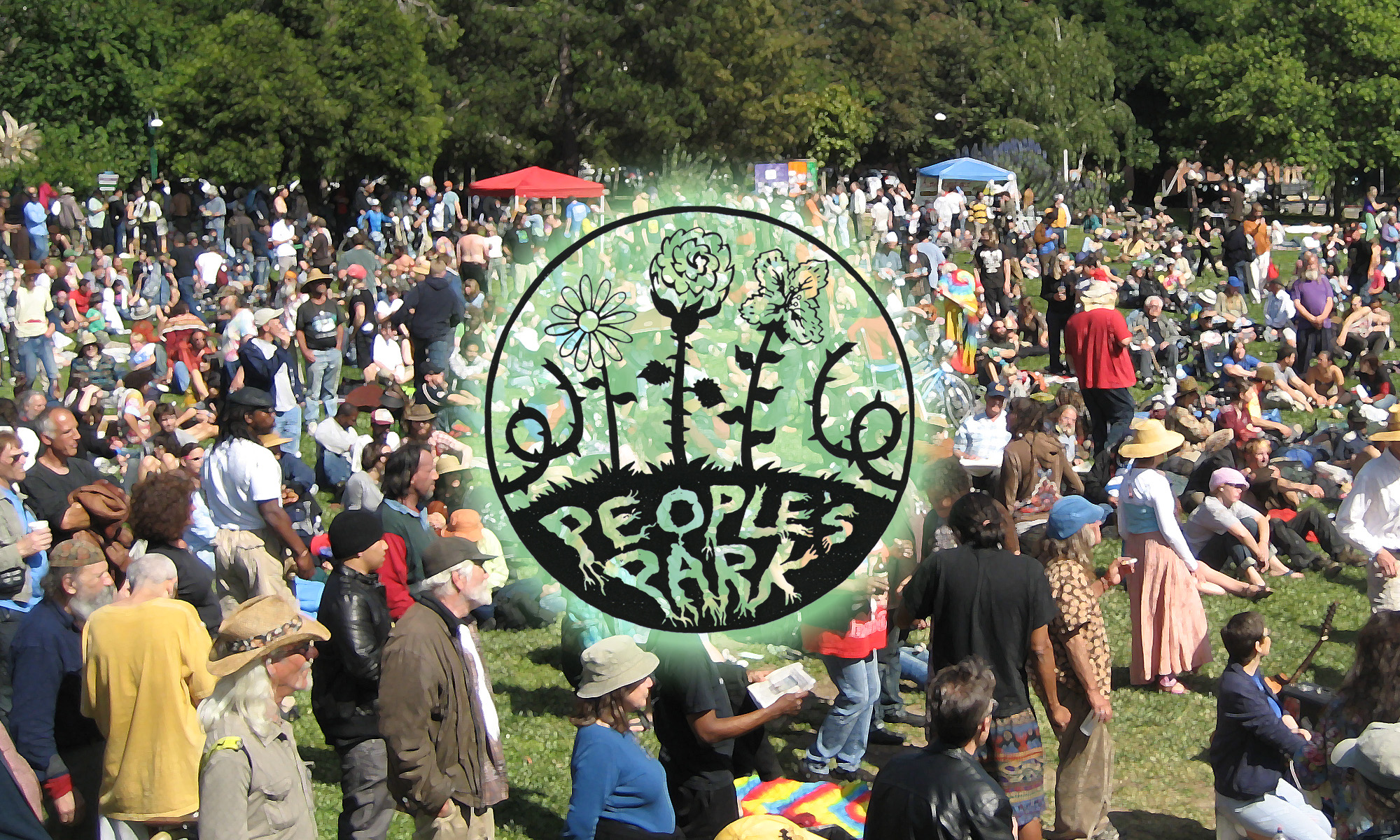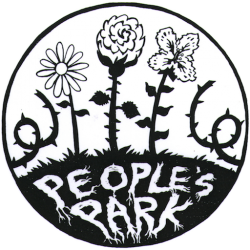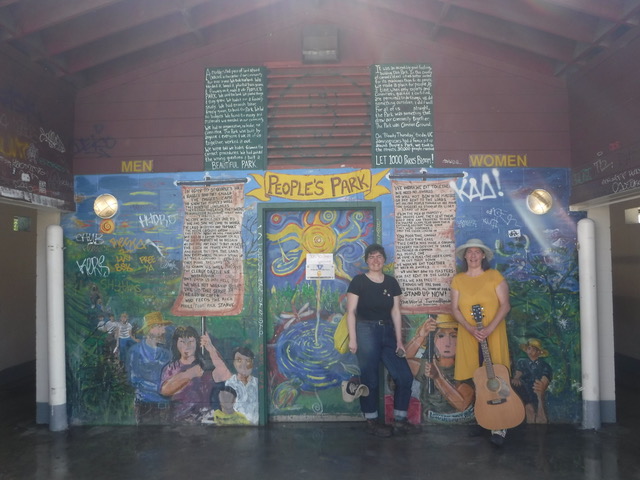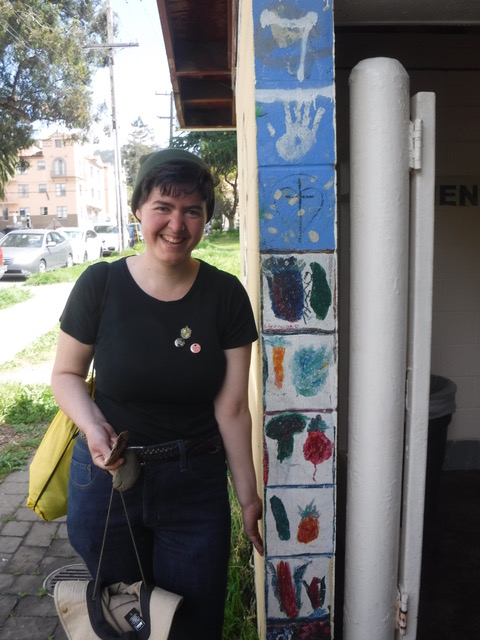by Memory
Saturday, June 25, 2022, 5:46 PM
Berkeley city council-member Rigel Robinson released a recent article championing the UC’s proposed redevelopment project on People’s Park. This article was accompanied with a statement from council-member Lori Droste’s legislative assistant. The statement compared People’s Park activists to the January 6th insurrectionists.
PART 1:
(https://www.berkeleyside.org/2022/06/23/opinion-how-berkeley-is-housing-the-people-of-peoples-park)
Berkeley council-member Rigel Robinson released an article centered around the need to redevelop People’s Park for support programs and housing. He praises the UC and city council (including himself) for this grand act of charity. However he doesn’t make a strong case as to why these services have to be built on People’s Park. The buildings of UC’s Anna Head complex (directly one block north from People’s Park) are falling apart. They are unsafe, and costly to maintain. Over the past 2 years, this complex has had 4 fires. Why couldn’t this site be razed, and replaced with the proposed new housing complexes? Why not tear down the UC’s Crossroads cafe, and replace it with a dorm? Why not introduce a new dorm in the core part of campus? Could the supportive housing project be built at the eastern edge of Ohlone Park, across the street from the North Berkeley senior center. This would place the building closer to BART, the library, city college and other civic services. (Ohlone Park is significantly larger than People’s Park. A building would fit there with less impact). These are just a few examples to show other other options exist.
This redevelopment project is politically tied to the conquering of People’s Park. It is not a case of the government acting purely for the sake of the greater social good. This development project is conditional to once-and-for-all stamping out a hub of social rebellion and social experimentation. The city could have built a new supportive housing and services hub on the former Telegraph Avenue location of C.I.L. (Center for Independent Living). It was a perfect opportunity the city passed on. Now the location is market-rate housing. The city didn’t care about supportive housing then, because it didn’t achieve the same political goal that building on People’s Park achieves.
The council-member refers to People’s Park as a “a gathering place for [the] unhoused”. Opponents of maintaining People’s Park as a 2.8 acre open space in South Berkeley, often will insinuate (or outright say) that the only people who use the park are homeless. This is factually untrue. Pre-pandemic, the majority of people who visited the park were not unhoused. The park was a refuge for houseless people, but most people who came to the park had places to stay at night. Most of these people came to the park for social reasons, to garden, to play chess, to use the basketball hoops (often students), to grab a free meal (Food Not Bombs), or to vibe (sativa, indica or hybrid). It is a fact that when the pandemic hit, the population shifted more towards the unhoused, as the park became a place where activists and service providers could coordinate mutual aid response for the unhoused. However, pre-pandemic the park was more economically and socially diverse.
Rigel calls People’s Park an “ungoverned space”. There is a truth to this, but the council-member fails to criticize the institutions who walked away from their responsibilities to manage park operations. Robinson seems to place the blame on activists and park preservationists. A decade ago, the UC disbanded the People’s Park Community Relations commission. There was a promise to reinstate the board, with new members and a new focus on community partnership; it was never reinstated. The UC’s main presence in the park is it’s police department, not it’s College of Natural Resources, nor the school of social welfare.
The UC Police had no real oversight, which resulted in systemically abusive behavior that drove a rift between park advocates and the university. Officers would humiliate people with mental-health disabilities. UC police would sporadically harass people handing out food. The department would actively intimidate people who dared to tend to the garden. More egregious behavior by UC police officers over the decades has included: excessive use of force, physical abuse, and at least one known case of an officer with substance-abuse issues shaking down people for drugs.
The city is also responsible for People’s Park being an “ungoverned space”. The city used to lease the park, and co-manage the park with the university. The city broke any commitment it had to People’s Park. There was at one point, many years ago, a plan for the UC to sell People’s Park to the city for one single dollar. However, the state government doesn’t permit any piece of university land to be sold for below market value. The state would not make an exception for People’s Park.
Rigel also wrote: “Changing anything at the park has been a political third rail… for decades”. The only changes that the UC attempted to make to the park did not include input from the People’s Park community. This lack of communication, and lack of community partnership lead to tensions. Most infamously, in 1991 the university had a plan to tear down the free-speech and concert stage, and replace a large swath of the open field with 2 sand-volleyball courts. This was not a concept developed though community discussions. When people protested the changes, UC police shot at people with wood slugs and rubber bullets — an action which only escalated tension. After being erected, the sand-volley ball courts weren’t even used, and the UC itself took them down. (Ironically, the UC would 20+ years later tear down another sand-volleyball court on the north side of campus. This court was popularly used by students and faculty.)
A little over a decade ago, the university once again proposed tearing down the People’s Park stage. A new stage was proposed, but the UC stipulated that the park community could not rebuild it. The old stage was built and donated by activists. The UC wanted the new stage to fully be university property. The new stage would also be more restricted in terms of use. As in 1991, the university made the mistake of not collaborating in a community partnership. The old stage remains.
Rigel says that park has been “frozen in time” since the park protests of 1969 and 1972. That is completely untrue. In 1974, an organic gardening course was created by university students. That same year, a project was started to plant California native species. In 1979 the first iteration of the stage was built, and a vegetable garden on the west end of the park was established. In 1984, the slide and swings were brought into the park. In 1989 the Catholic Workers brought in a trailer to serve as a cafe, which later was towed away by UC police. In 1991, Food Not Bombs began delivering food into the park. In subsequent years in the later 90s, the 2000s and the 2010s, planter boxes and garden beds have come and gone, various plants swapped in and out by various gardeners. More benches were created. There’s been concerts held by various organizations, including UC student groups.
Part II:
(https://www.berkeleyside.org/2022/06/23/opinion-how-berkeley-is-housing-the-people-of-peoples-park#comment-5896527980)
Eric Panzer is the is the legislative assistant of Berkeley council member Lori Droste. He attached a statement to Robinson’s article. He asserts that advocacy for preserving the openness of People’s Park is anti-democratic. He makes an insulting, and ridiculous comparison between Park activists and the January 6th insurrectionists.
The UC is not a democratic institution. For decades, there has been a call to democratize the UC regents. In 1993, the Committee for a Responsible University proposed that half the UC regents should be chosen by California voters through electoral process. The Presidency of the UC is not democratic. When criticism was raised about former Homeland Security Chief Janet Napolitano (who had no experience in the field of higher education) being chosen as UC President, there was no direct democratic action available to stop her appointment. Likewise, the respective chancellors of the different UC campuses are not democratically elected.
Any comparison to People’s Park advocates and the January 6 insurrectionists is insulting and stupid. The Jan 6th insurrection was planned in part by the Proud Boys. While founded in the state of New York, the Proud Boys came to prominence during a series of rallies known as the Battles of Berkeley. During one of these rallies, the Proud Boys marched from Sproul Plaza down to People’s Park for the purposes of threatening people there. The advocates of People’s Park were in direct opposition to the Proud Boys, Patriot Prayer, and the Alt-Right in general.
To follow Panzer’s argument, any protest against any government agency or institution, is tantamount to insurrection and advocacy for fascist dictatorship. Any past or future protest against the University of California, according to Panzer, is treason. The Memorial Oak Grove protest, the Occupy Cal encampment at Sproul Plaza, or any of the numerous building sit-ins that occurred in the 2010s were all acts of conservative fascism by Panzer’s definition. The only true progressive act is to not protest against authority.
The redevelopment of People’s Park is being challenged in court. In part, that is why the UC hasn’t sent in the riot police to shut down the park. Access to the courts is part of the democratic process, and a fundamental freedom. As for direct action on the ground, that too is part of democracy. People have the right to assembly, and the right to take a stand. The UC itself set rules on engaging protest encampments, after the police violence against Occupy Cal. It remains to be seen if the UC follows their own regulations, or if they shut down the park with a burst of extreme violence.
Lori Droste’s assistant wrote: “the Park’s supposed boosters foisted a policy of malignant neglect upon the Park”. This is a dishonest assessment. The neglect has come from the university, the city and the state government. Park advocates for years been the people trying to keep the park from falling apart. They have maintained the plants, and other aspects of the park infrastructure and amenities. They have demanded that the sick, the downtrodden and the destitute be given assistance by the government. It is the government that has ignored these pleas for years, only now to respond on the condition that People’s Park be redeveloped. This bargain is manipulative, dishonest, and uses the needy as pawns in a political game for the purpose of greatly disrupt activism in Berkeley and on campus.
Part III (Conclusion):
The debate is being presented as a false dichotomy. Either the redevelopment plan goes through, or the park’s current conditional state is maintained. In truth, there are other options. Housing and supportive services can be built elsewhere, and there can be a commitment to improving the park through community partnerships and mutual communication.
Another option is compromise, for those who are willing to explore such a path. Perhaps the supportive housing and a service center gets built on People’s Park, and the dorm gets built elsewhere. This puts a new building on site, but leaves more of the open space available for gardening and recreation.
Park advocates aren’t happy with houseless people needing to find refuge in the park. Park advocates aren’t happy with people with ailments going untreated. Yet, Robinson and Panzer are presenting a fallacy that advocates are fighting for this to be the status quo. They insinuate that people are advocating for the continued suffering of others. Their arguments are disgusting at their core, and don’t reflect the type of mutual aid and advocacy that activists in People’s Park have had to offer out of compassion and necessity.
( This article was originally published on IndyBay.org : https://www.indybay.org/newsitems/2022/06/25/18850696.php )



